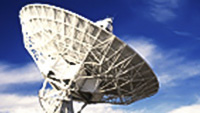Search and order online
Hibernation: Sleep while traveling to other planets
- Video Online + Tape
- Title Hibernation: Sleep while traveling to other planets
- Released: 23/11/2004
- Length 00:05:38
- Language English
- Footage Type Documentary
- Copyright ESA
- Description
Hibernation - sleep while travelling to other planets
ESA TV Exchanges
Manned missions to Mars are no longer wild dreams. For example, ESA's Aurora programme is studying how, after exploring Mars with robotic missions, it is possible to send astronauts to the red planet. Astronauts on such missions would face the challenge of living in a confined space with not much to do for extremely long periods. ""Might as well sleep it off!"" Studies initiated by ESA's Advanced Concepts Team have gone one step further. Couldn't astronauts mimic the hibernation of animals? Two biologists are conducting, as ESA consultants, investigations into the physiological mechanisms that mammals use to hibernate.
Although these studies are in a very early stage, and do not address missions to Mars, it is obvious that the astronaut's ability to hibernate would have a significant benefit in abort and emergency scenarios. Of course, a suitable and lightweight 'hibernaculum' to shelter astronauts during their 'long sleep' would have to bA state of human hibernation induced to cope with long haul space travel, now researchers are studying naturally hibernating animals to discover the science of suspended animation. The goal to apply the findings to Man and make the stuff of science fiction a reality.
The International Space Station might be a technological marvel but it doesn't offer the comforts of home. Because this is a concentrated universe where living is anything but easy.
Space is limited putting great pressure on the astronaut's body and mind, muscles waste, and the atmosphere is claustrophobic
When manned deep space missions become a reality its only going to get worse.
Scientists are looking to the animal kindgom for answers, specifically tracking down the mechanism that allows them to hibernate, an ideal condition for astronauts travelling for years through Space.
At the University of Pavia in Italy a research team is conducting hibernation experiments on behalf of the European Space AgencyProfes










